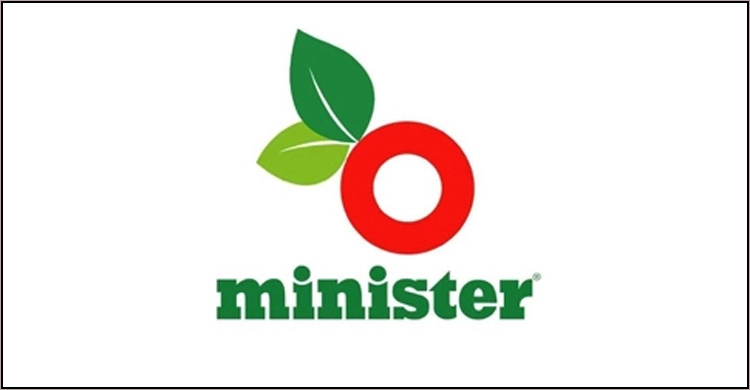The Ultimate Guide to Finding Scholarships for International Students

As an Amazon Associate, I earn from qualifying purchases.
Finding scholarships as an international student can be a daunting process, but with the right strategy and resources, you can secure the funding you need. Here’s a comprehensive guide to help you navigate through this journey: 1. Understanding the Types of Scholarships Merit-Based Scholarships: Awarded based on academic, artistic, or athletic achievements. Need-Based Scholarships: Granted based on the financial need of the student. Country-Specific Scholarships: Offered to students from specific countries by universities, governments, or private organizations.
Program-Specific Scholarships: Targeted at students pursuing particular fields of study or degrees. Diversity Scholarships: Aimed at increasing diversity within the student body. Organization-Based Scholarships: Provided by various organizations, foundations, or companies. 2. Researching Scholarships University Websites: Check the financial aid or international student section of the universities you are interested in. Government Resources: Look for scholarships offered by the government of your home country or the country where you plan to study. Scholarship Databases: Utilize online scholarship search engines like: Scholarships.com Fastweb IEFA
(International Education Financial Aid) ScholarshipPortal Cappex Professional Associations: Many associations offer scholarships to students entering their fields. 3. Key Scholarships to Consider Fulbright Program (USA): For graduate students, young professionals, and artists from abroad. Chevening Scholarships (UK): For outstanding emerging leaders to pursue a one-year master’s at any UK university. Erasmus Mundus (EU): Offers scholarships for students from around the world to study in European universities. DAAD Scholarships (Germany): For various academic levels in Germany. Australia Awards: Scholarships funded by the Australian government for students from developing countries. Joint Japan/World Bank Graduate Scholarship Program: For students from developing
countries to study development-related subjects. 4. Application Tips Start Early: Begin your search and application process well in advance of the deadlines. Prepare Required Documents: Typically, you will need academic transcripts, recommendation letters, a resume, a statement of purpose, and sometimes proof of language proficiency. Tailor Your Application: Customize your application materials to fit the specific scholarship requirements and highlight how you meet their criteria. Seek Help: Ask teachers, mentors, or advisors for feedback on your application materials. Be Persistent: Applying for scholarships can be competitive. Don’t be discouraged by rejections; keep
applying to multiple scholarships. 5. Avoiding Scams No Application Fees: Be cautious of scholarships that require an application fee. Verify the Source: Ensure the scholarship comes from a reputable organization. Be Wary of Guarantees: Legitimate scholarships do not guarantee awards before an application is submitted. 6. Additional Resources EducationUSA: Provides information about scholarships and financial aid for international students. Embassies and Consulates: Check the websites of the embassies or consulates of your target study destination. Financial Aid Offices: Contact the financial aid offices of the universities you are interested in for more information on available scholarships. By following these steps and utilizing the resources available, you can significantly
increase your chances of finding and securing scholarships as an international student. Remember, persistence and thorough research are key to success.Understanding the Types of Scholarships When seeking scholarships, it’s crucial to understand the various types available to tailor your search and application process effectively. Here’s an in-depth look at the different types of scholarships you might encounter: 1. Merit-Based Scholarships Criteria: Awarded based on academic excellence, talents, or other achievements such as athletics or the arts. Examples: Academic Excellence Scholarships Artistic Talent Scholarships Athletic Scholarships Key Points: Often require a
high GPA, outstanding standardized test scores, or a demonstration of exceptional talent in a specific area. May also consider leadership qualities, extracurricular activities, and community service. 2. Need-Based Scholarships Criteria: Granted based on the financial need of the student. Examples: Federal Pell Grant (USA) Institute-specific financial aid programs Key Points: Requires submission of financial information such as family income, assets, and sometimes tax returns. Aim to make education accessible to students from low-income backgrounds. 3. Country-Specific Scholarships Criteria: Offered to students from specific countries to encourage cultural exchange and international education. Examples: Fulbright Program (USA) Chevening Scholarships (UK) Australia Awards Scholarships Key Points: Often funded by governments or international organizations. Aim to strengthen diplomatic ties and promote international collaboration. 4. Program-Specific Scholarships Criteria: Targeted at students
pursuing specific fields of study or degrees. Examples: STEM (Science, Technology, Engineering, and Mathematics) Scholarships Medical and Health Sciences Scholarships Business and MBA Scholarships Key Points: Sponsored by educational institutions, professional associations, or industry organizations. Encourage students to enter fields that are in high demand or strategically important. 5. Diversity Scholarships Criteria: Designed to promote diversity within the student body by supporting underrepresented groups. Examples: Scholarships for Women in STEM Scholarships for Minority Students LGBTQ+ Scholarships Key Points: Aim to create an inclusive and diverse
educational environment. Often target specific demographics such as race, gender, sexual orientation, or disability status. 6. Organization-Based Scholarships Criteria: Provided by various organizations, foundations, or companies, often with specific eligibility criteria. Examples: Gates Millennium Scholars Program Rotary International Scholarships Coca-Cola Scholars Program Key Points: Funded by private organizations, non-profits, or corporations. May require an affiliation with the organization or participation in specific activities or internships. 7. Institutional Scholarships Criteria: Offered directly by universities and colleges to attract talented students. Examples: Chancellor’s Scholarships University-specific Merit Scholarships Key Points: Can be need-based, merit-based, or a combination of both. Often renewable for multiple years based on maintaining certain academic standards.
Conclusion Understanding the various types of scholarships available can help you identify which opportunities best align with your background, needs, and goals. Tailoring your applications to fit the specific requirements and demonstrating how you meet the criteria can significantly enhance your chances of receiving financial aid.
